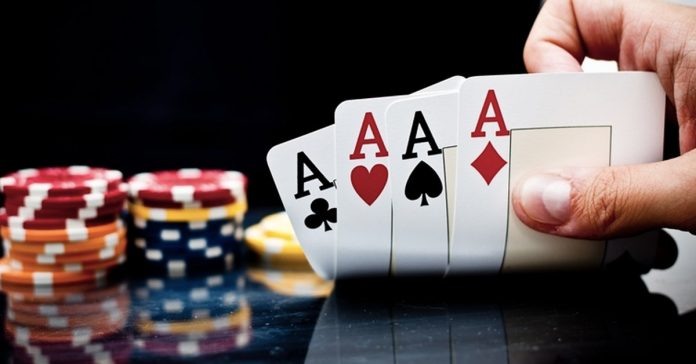Types Of Gambling In India
In Islam, there are two types of deeds: “halal,” meaning lawful according the Prophet’s precepts, and “haram,” meaning sinful to such an extent that engaging in it would result in punishment under Islamic law. Gambling is one of the deeds that are considered haram in Islam. Under this law Indian tribes in any state can conduct gambling on Indian land as long as the type of gambling has been authorized for non-Indians. The IGRA defines 'Indian land' as either: Land that is part of a federally recognized Indian reservation, or Off-reservation land that is held in trust for a tribe by the federal government. At India Casinos, we review different licensed online casinos in India so you can get access to the best collections of online real money games in India. Not only that, but we also check out each site’s casino bonus offers and promotions to let you know which ones are worth taking advantage of!
Gambling in India varies by state as states in India are entitled to formulate their own laws for gambling activities. Some states like Goa have legalised casinos. Common gambling activities like organized betting is restricted except for selective categories including lotteries and horse racing.
In the 21st century, more people have started making cash bets upon prohibited betting and gambling activities in India. Critics of gambling claim that it leads to crime, corruption and money laundering. However, proponents of regulated gambling argue that it can be a huge source of revenue for the state. Casinos in Goa contributed Rs. 135 crores to the state revenue in 2013.[1]
Casinos now operate in Goa, Daman and Sikkim.[2]

Legality[edit]
Gambling is a state subject, and only states in India are entitled to formulate laws for gambling activities within their respective states. The Public Gambling Act of 1867 is a central law that prohibits running or being in charge of a public gambling house. The penalty for breaking this law is a fine of ₹200 or imprisonment of up to 3 months. Additionally, this Act prohibits visiting gambling houses. A fine of ₹100 or imprisonment of up to one month is the penalty.[3]
Indian law classifies games into two broad categories viz. game of skill and game of chance. The Supreme Court of India has, for instance, held[4]

The game of Rummy is not a game entirely of chance like the ‘three-card’ game mentioned in the Madras case to which we were referred. The ‘three card’ game which goes under different names such as ‘flush’, ‘brag’ etc. is a game of pure chance. Rummy, on the other hand, requires a certain amount of skill because the fall of the cards has to be memorised and the building up of Rummy requires considerable skill in holding and discarding cards. We cannot, therefore, say that the game of Rummy is a game of entire chance. It is mainly and preponderantly a game of skill.
The Information Technology Act 2000 regulates cyber activities in India does not mention the word Gambling or Betting thereby the act was left for interpretation by the Courts which have refused to examine the matter. Further, online gambling is a banned offense in the state of Maharashtra under the 'Bombay Wager Act'.

Only three states allow casinos, Goa , Daman and Sikkim.[5] There are two casinos in Sikkim called Casino Sikkim and Casino Mahjong and 10 in Goa, of which six are land based and four are floating casinos that operate on the Mandovi River. The floating casinos in Goa are Casino Deltin Royale, Casino Deltin Jaqk, Casino Pride and Casino Pride 2. While the first two are controlled by the Deltin Group, the latter two are managed by the Pride Group. According to the Goa, Daman and Diu Public Gambling Act, 1976 casinos can be set up only at five star hotels or offshore vessels with the prior permission of the government. This has led the Deltin Group to open the first land based Casino in Daman which is open now. News reports also suggest that Visakhapatnam is also being looked on as the next casino destination.[6]
Online[edit]
Online gambling is in its infancy in India, but Sikkim planned to offer three online gambling licences in 2010. This failed despite India being the most sought out country for online gambling.[7] Sikkim also permits an online lottery, which takes bets from players throughout India. It was expected that other states would follow Sikkim, thereby opening up a major online gambling market throughout India.
Even though Indian casinos cannot promote or have sites that promote online gambling games such as casino, sports betting and bingo, it is not illegal for non-Indian casino companies (so called offshore companies) to have sites that focus on Indian players. The only requirement from a legal point of view is that the offshore casinos have to offer Indian Rupees as a payment method for Indian players. Although this is not accurate anymore since January 2020.
Unlicensed gambling is happening regardless, with as much as $60 billion worth of action and $48 billion being directed at Indian cricket alone.
Legalisation[edit]
Despite the existing prohibitive legislations, there is extensive illegal gambling throughout the country. The Indian gambling market is estimated to be worth US$60 billion per year, of which about half is illegally bet.[8] According to the Indian National Newspaper, the Chief Executive officer for the International Cricket Council (ICC) said he was in favour of legalising betting in sports. He believes the illegal funds profited are through underground bookies that used the money to fund terrorism and drugs.[9] Many Indian professionals as well as online forums have urged the government to introduce legal but regulated gambling in India to bring the gambling economy out of the grip of mafia and underground dons.[10]
Payment gateways[edit]
One of the biggest obstacles faced by sports bettors in India is the fact that depositing to foreign bookies is extremely difficult. Typically, the majority of users deposit to online bookies using Moneybookers or Neteller. Some attempts to deposit using a Visa or MasterCard may fail. The same is true of online bank transfers. In order to circumvent these blocks, savvy internet users have started to use e wallet services for depositing. These services, enable users to fund an online betting account in Rupees. This is important because it avoid legal issues that may have arisen out of F.E.M.A Foreign Exchange law.
See also[edit]
References[edit]
- ^'Goa casinos contribute Rs 135cr revenue in 2012-13 - Times of India'.
- ^Reddem, Appaji. 'NRI bets on Andhra Pradesh, moots casino on the Krishna'. The Hindu. Retrieved 20 February 2017.
- ^'The Public Gambling Act, 1867'. www.indiankanoon.org.
- ^Sayta, Jay (January 1, 2012). 'LEGALITY OF POKER AND OTHER GAMES OF SKILL: A CRITICAL ANALYSIS OF INDIA'S GAMING LAWS'(PDF). NUJS Law Review. Archived from the original(PDF) on November 2, 2013. Retrieved January 3, 2015.
- ^Patil, Ajit (28 May 2009). 'Casinos in India'. India Bet. Archived from the original on 9 April 2011. Retrieved 28 October 2009.
- ^'Casinos want to gamble on Visakhapatnam'. Deccan Chronicle. 3 November 2014. Retrieved 6 November 2014.
- ^Sanjay, Roy (27 October 2009). 'Indian online gambling market set to open up'. India Bet. Retrieved 28 October 2009.
- ^Thompson, James (27 October 2009). 'Betfair and William Hill target India'. The Independent. Retrieved 28 October 2009.
- ^'Sports Betting Favoured by ICC'. CasinoOnline.net.in. Retrieved 8 August 2011.
- ^Ashok, Donnie. 'Jay Sayta, Founder Glaws.in, on how he became an authority in Gambling Laws'. Superlawyer.in. Superlawyer. Retrieved 2014-12-21.
India has always heavily restricted the idea of online betting except in a few categories such as horse racing and lotteries. Critics of gambling were always against the game. They think gambling have always induced crime, money laundering, corruption and other immense problems. So, India has always been against gambling and betting. However the country is changing. Today betting online in India is a quickly growing pasttime activity.
Many states have legalized gambling. These states get massive revenue from the gambling business. Goa government collected 135 crore revenue for the state in 2013. Goa, Daman, and Sikkim are the states that have legalized betting. Online gambling is a new concept that does not fall under the old Indian gambling laws. Meaning that it is considered safe and legal to do it.
- Amazing Bonus
- Great Brand
- Good Odds, Many Sports
- Great Mobile Platform
- Huge Bonus
- Good Odds
- Hindi Language
- Great Betting Platform
- Very Large Bonus

Types Of Gambling In India List
- Good Mobile Platform
- Odds On Indian Sports
- Good Customer Service
Types Of Gambling In India 2020
Popular Sports And Tournaments In India
There are a lot of popular sports in India. Indian netizens have always loved playing indoor and outdoor games. Cricket is like a religion in India. Horce racing has always been a popular past time activity. FIFA, the international governing body of world football, has recognized India as the sleeping giants of world football. In recent years, anyone can visualize the rise of Indian Football team in the last few years. Some of the best sports tournaments in India are
Types Of Gambling In India Today
- Indian Premier League (Cricket)
- Indian Super League (Football)
- I-League (Football)
- Hockey India League (Hockey)
- Pro Kabaddi League (Kabaddi)
- Premier Badminton League (Badminton)
- Premier Futsal (futsal or five-a-side football)
- I-Pro Wrestling League (Wrestling)
Nothin’ but Net! – NetEnt just launched Super Striker™
Types Of Gambling In Indiana
In the midst of worldwide sporting events at a standstill, NetEnt has used this stagnant...